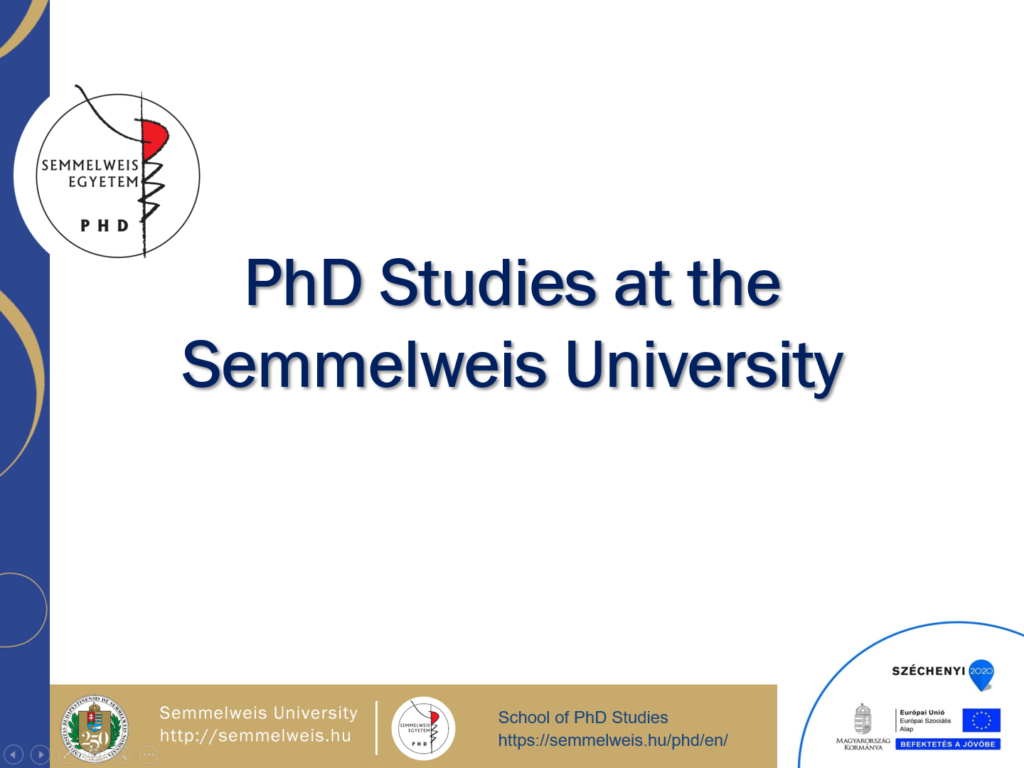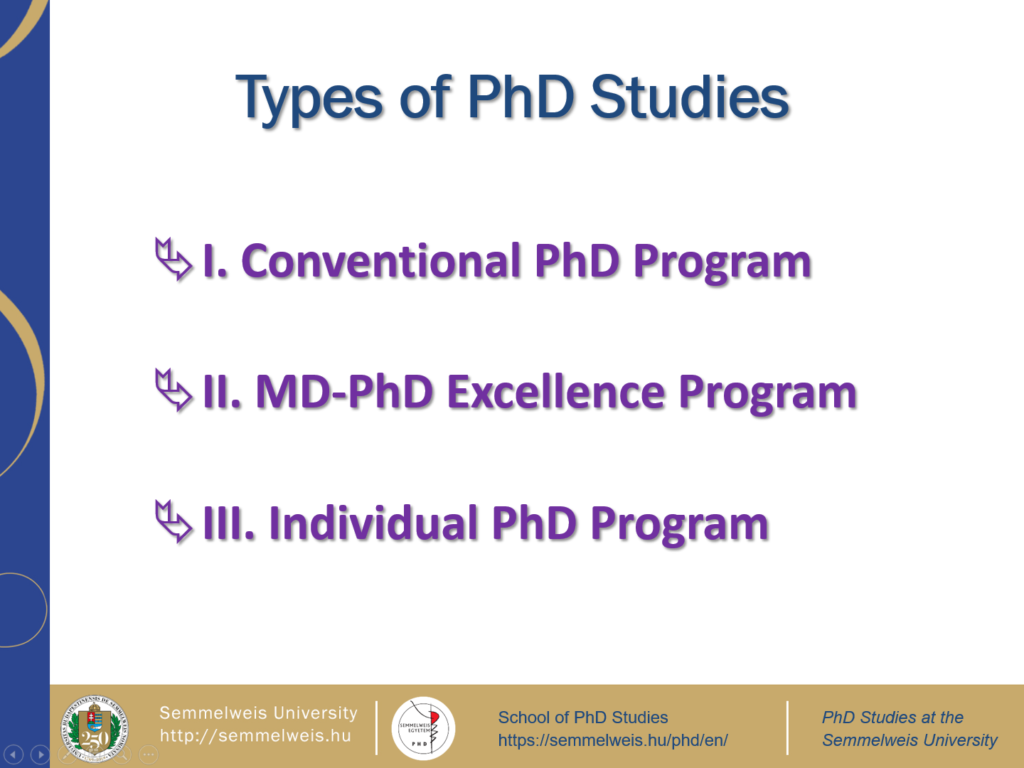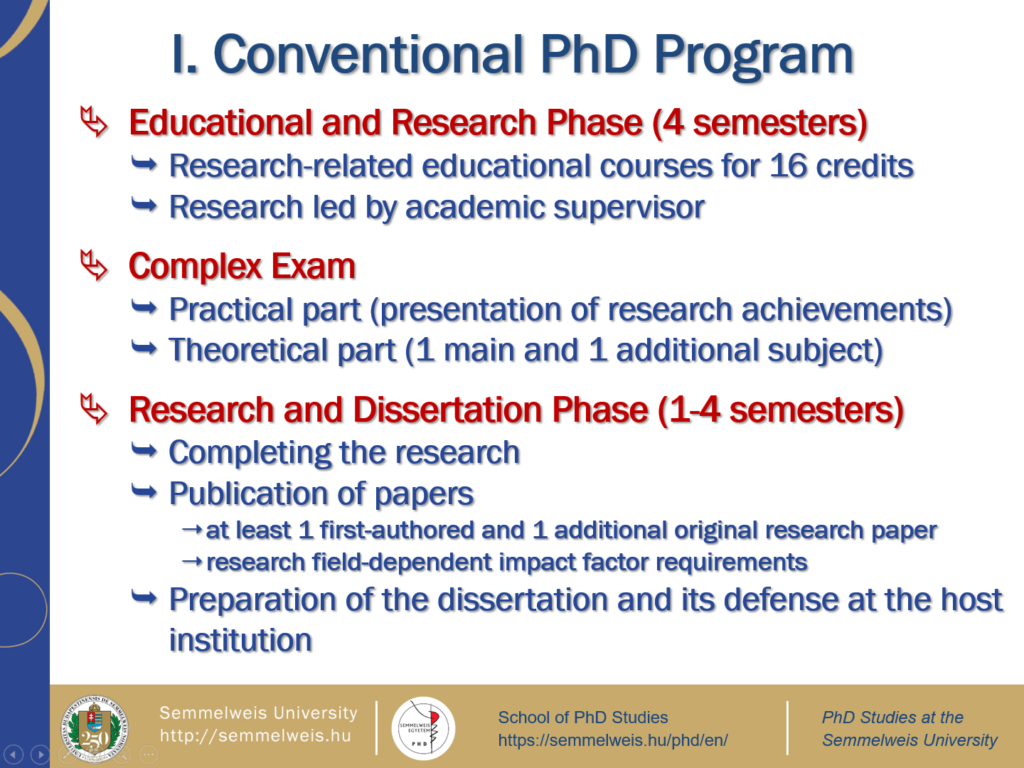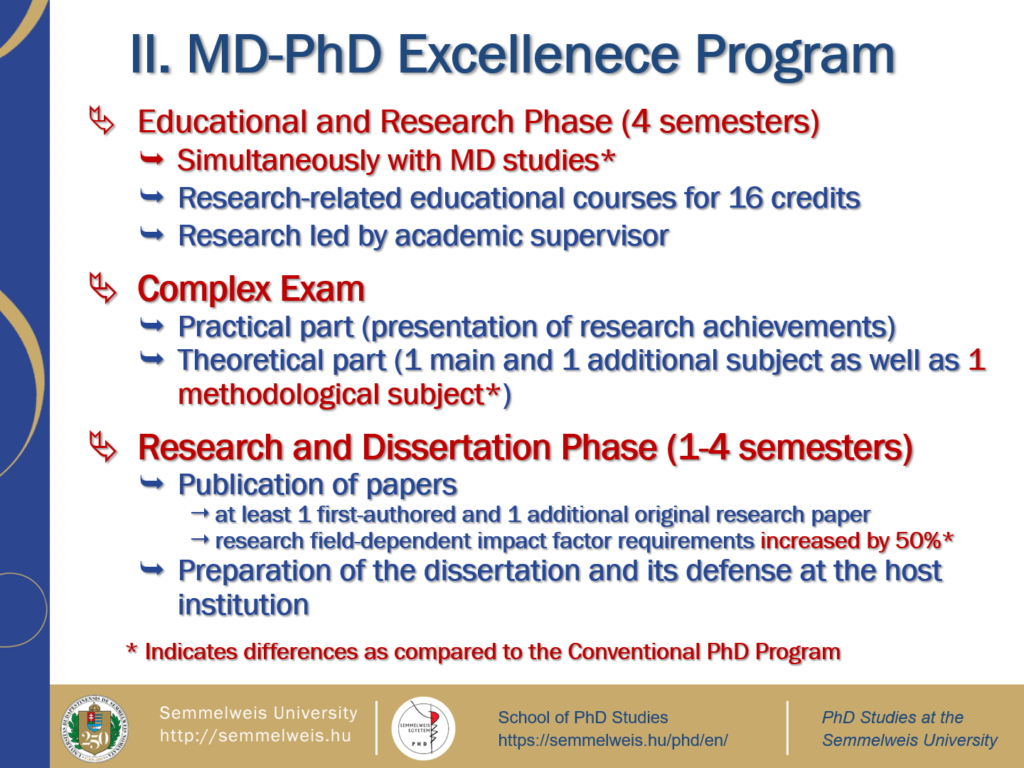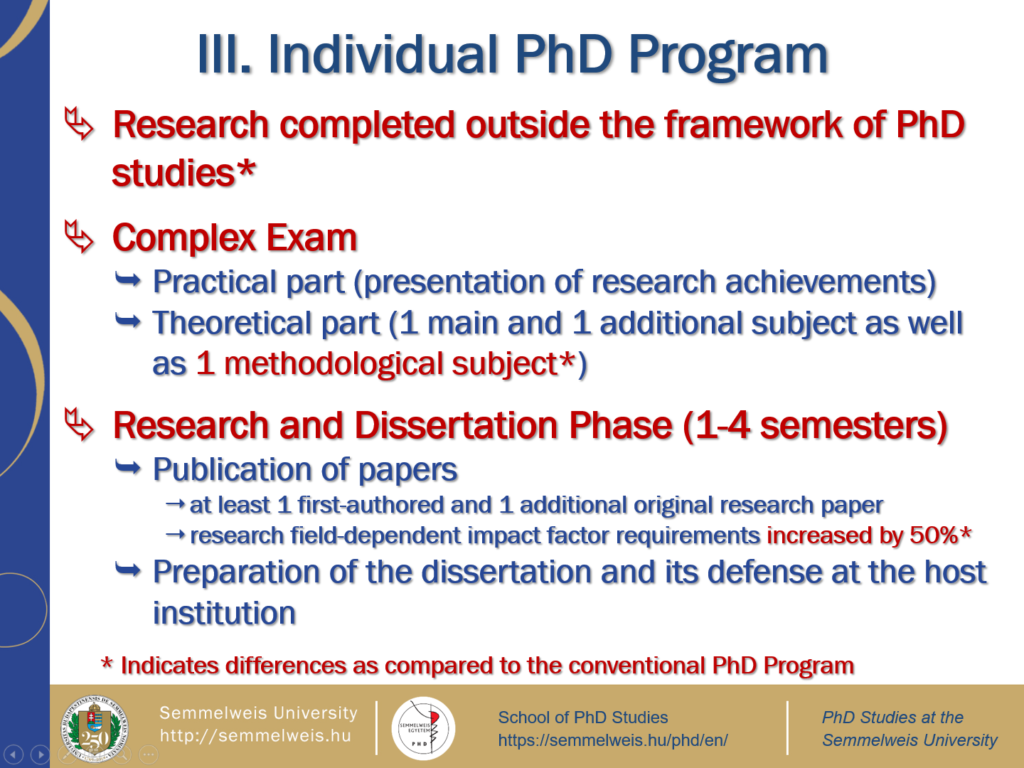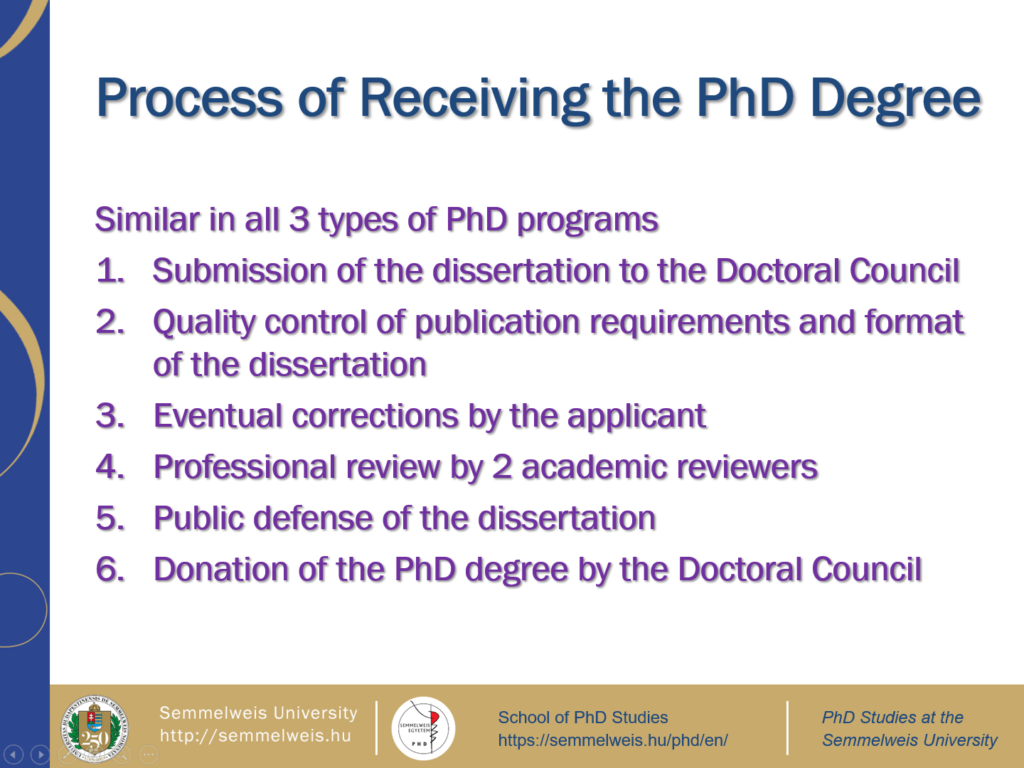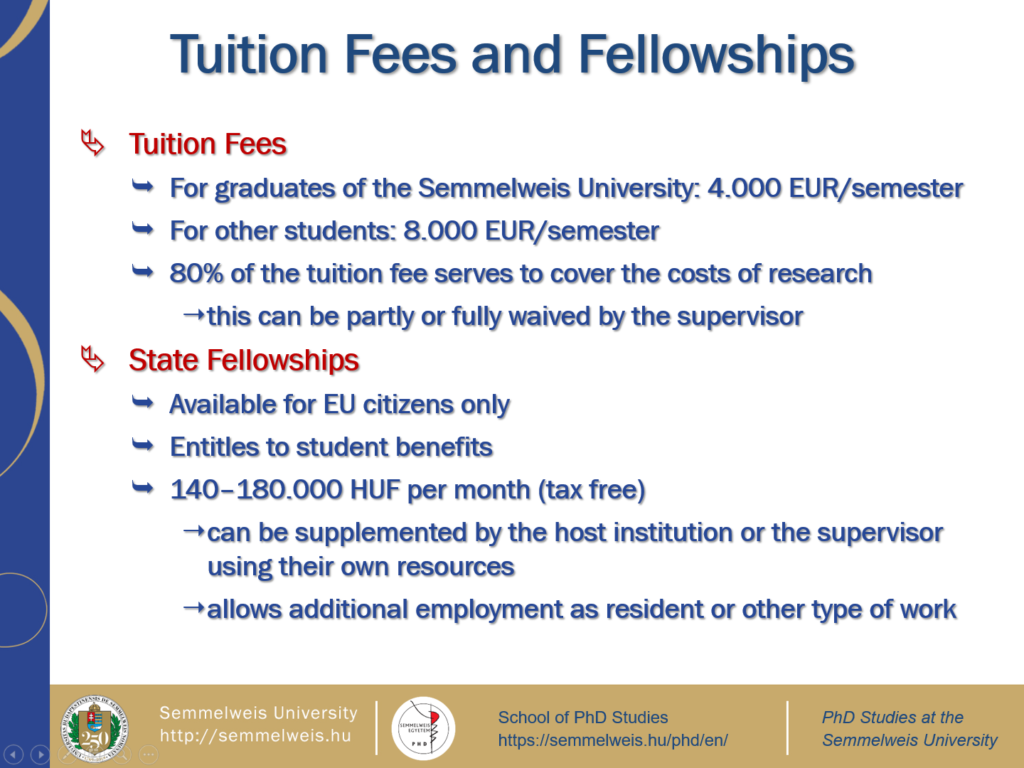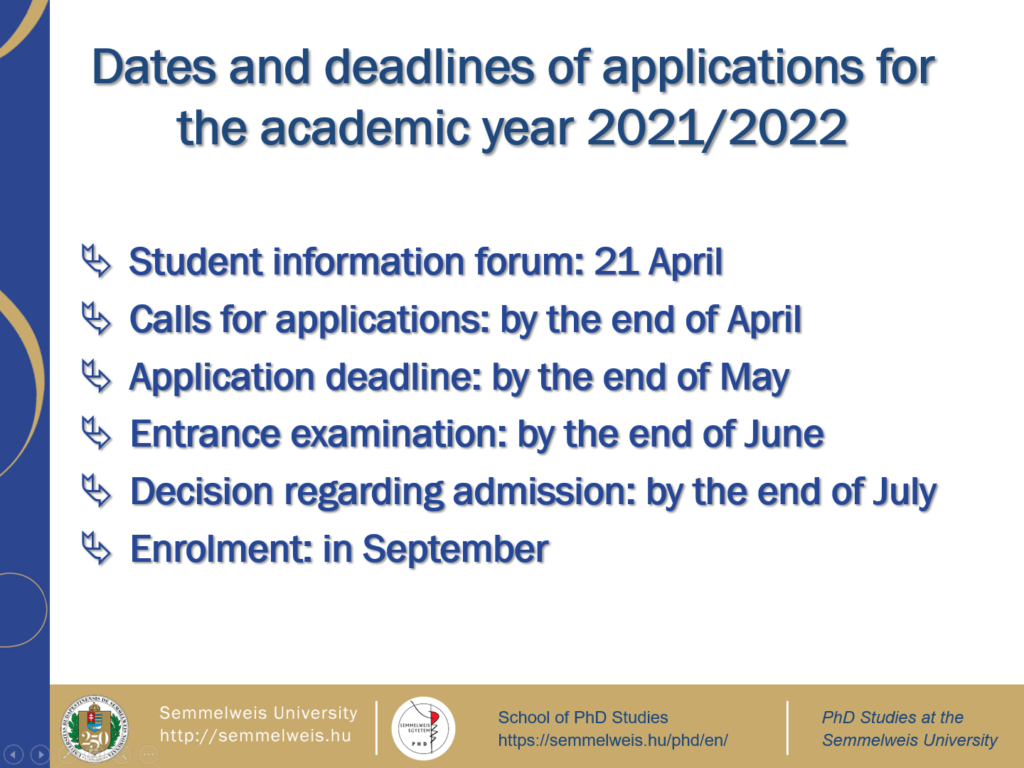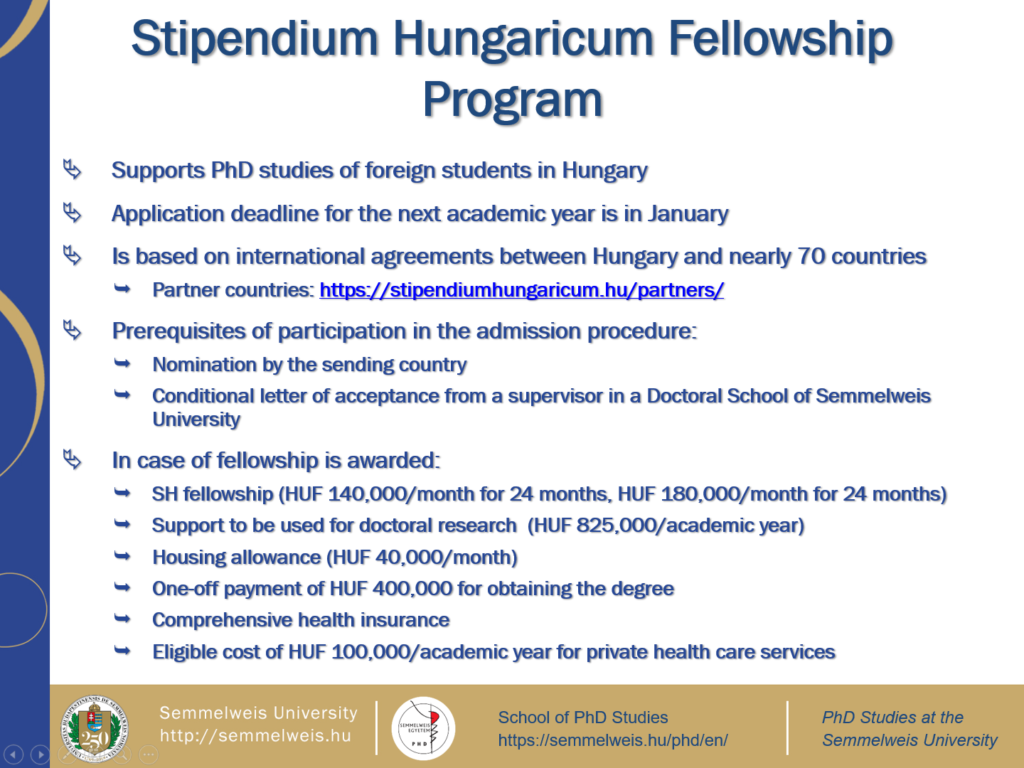PhD Studies at the Semmelweis University
The aim of the Doctoral (PhD) Program is to provide research competences that enable the candidates to do research work, to form independent judgement concerning scientific questions, and to actively participate in the public life of the scientific community. The PhD degree is a prerequisite of a professional career and is a welcome plus for those applying for ambitious management positions in the health care system or in companies doing research, development and innovation.
Types of Doctoral Program
- Conventional PhD Program
PhD studies can be undertaken with the help of a state fellowship (for EU citizens only) or with self-financing. After a successful entrance examination, the Program starts with a 4-semester Educational and Research Phase, for which candidates holding MD or MSc degrees are eligible. Requirements in this phase include completion of research-related educational courses (16 credits altogether), and research work under the guidance of a supervisor. After the 4th semester the students sit for a complex exam to give account of the scientific knowledge gained and the research results achieved. After a successful exam they enter the second, Research and Dissertation Phase in order to complete the research started in the first phase, to publish the results, and to prepare and submit their doctoral theses after a successful debate at the host institution. This is followed by public defence of the thesis and, after a successful defence, awarding the PhD degree by the Doctoral Council. Prerequisites of the PhD degree are knowledge of a foreign language necessary for scientific activity (usually English), and fulfilment of the predetermined publication requirements (usually publication of 2 original papers in journals of high standing measured by their impact factor). The maximum duration of the Research and Dissertation Phase is 4 semesters, but in case of earlier completion of the above requirements the doctoral thesis can be submitted at an earlier time.
- MD-PhD Excellence Program
Medical, dental and pharmacy students achieving outstanding results during their studies in frame of the Students’ Scientific Association have the possibility to meet the requirements of the complex examination (completion of PhD courses worth of 16 credits and fulfilment of the proportional fraction of the scientific work required for the degree) already in the last 2 years of their undergraduate studies under the guidance of their future supervisor. After receiving their MD, DMD or PharmD degree and passing the complex examination, they can directly enter the Research and Dissertation Phase of the PhD Program, and thus can receive their PhD degree two years earlier than those participating in the Conventional PhD Program with doctoral studies. MD-PhD students are awarded a PhD degree under conditions identical with those applied in the Conventional PhD Program, except for having to meet a 50% higher impact factor requirement.
- Individual PhD Program
The Individual PhD Program is for those whose research, done outside the framework of a Doctoral School (e.g. work done abroad or in a research institution independent of universities) meets the requirements of awarding the PhD degree. Following a successful entrance examination, they immediately sit for the complex examination, and directly enter the Research and Dissertation Phase without going through the Educational and Research Phase and taking courses. They subsequently receive their PhD degree through the procedure described above for the Conventional PhD Program, except for having to meet a 50% higher publication requirement.
Additional information about the Doctoral Program
- Legal status of PhD students
In the course of the Doctoral Program and during acquiring their degrees, the participants establish a legal relationship of student status with the University, their fellowships are exempt from taxes and contributions, and they are entitled to the benefits due to university students. The student status of PhD students may be suspended, on justifiable grounds, for a maximum of 4 semesters in the Educational and Research Phase and a maximum of 2 semesters in the Research and Dissertation Phase.
In addition to student status, PhD students may enter employment as residents or other types of employment with the University or other employers, but that does not extend the maximum duration of student status.
- Deadline for submitting the doctoral thesis
The doctoral dissertation shall be submitted within 3 years after the complex examination; this deadline can be extended by maximum one year in exceptional circumstances (e.g. childbirth, illness).
- Creditability to time of vocational training
Maximum one year of the studies undertaken within the framework of the publicly funded doctoral program can be credited to the time of the residency in Hungary, depending on the decision of the University. The University may also authorize crediting further, maximum 6 months’ time, if the candidate can prove having done outstanding scientific research in the special field of the vocational training.
- Fellowship and tuition fee
Citizens of EU member states may apply for a state fellowship, which amounts to tHUF 140–180 per month that can be supplemented by the host institution or the supervisor using their own resources. The tuition fee of self-financed doctoral education is €8000 per semester, and for graduates of Semmelweis University, €4000 per semester. 80% of the tuition fee serves to cover the material and personal costs of research, which can be partly or fully renounced by the supervisor.
